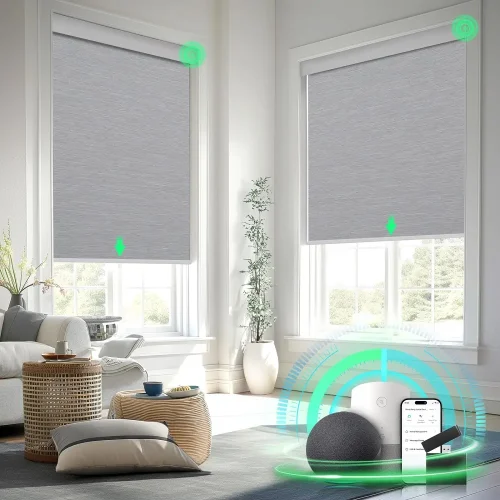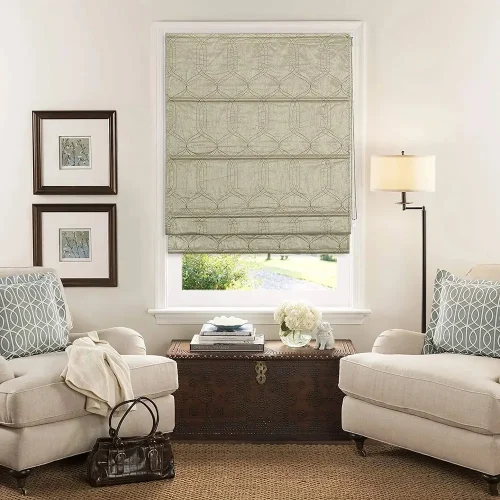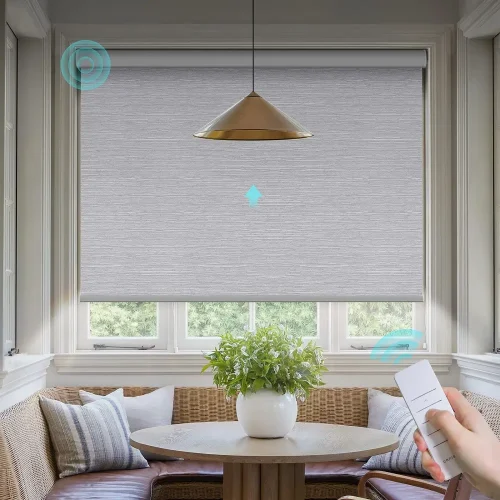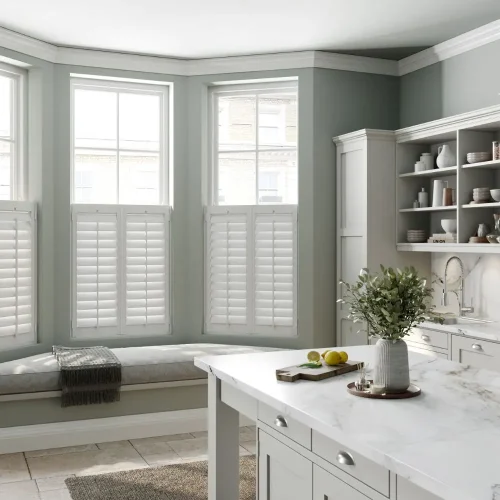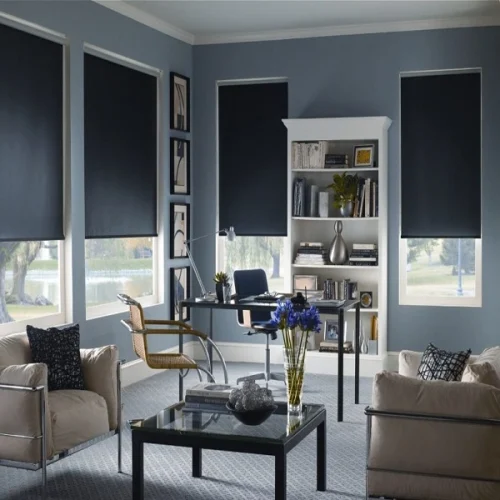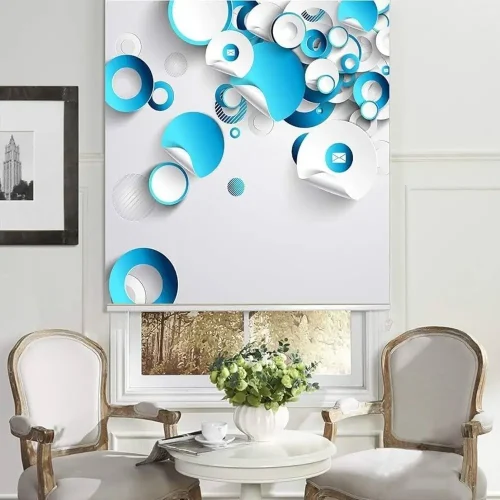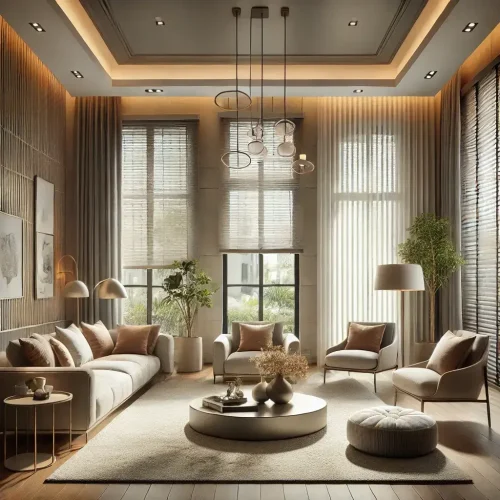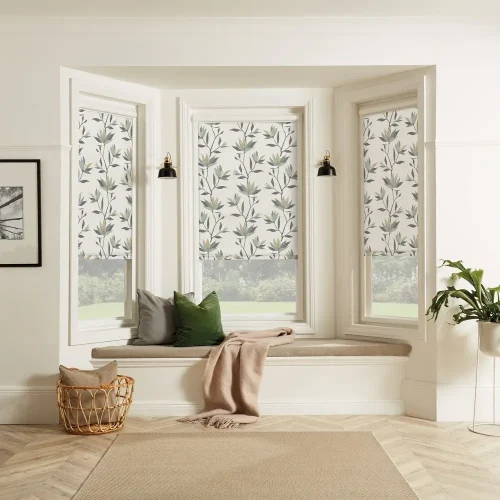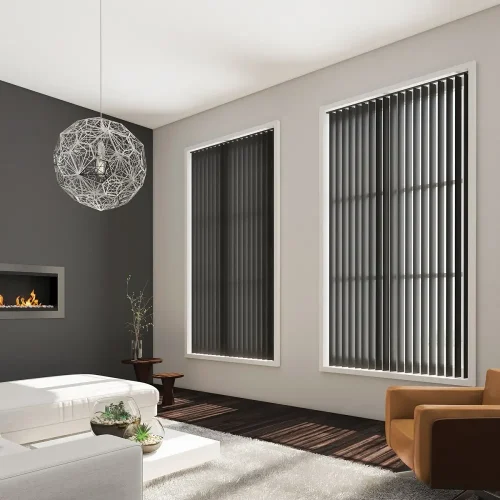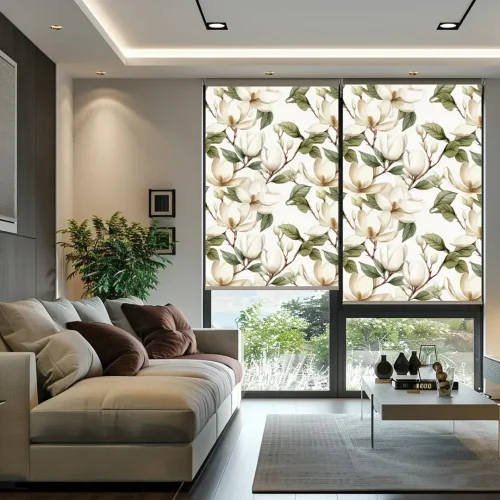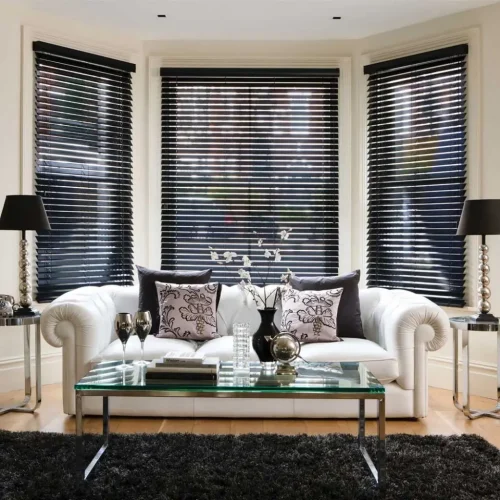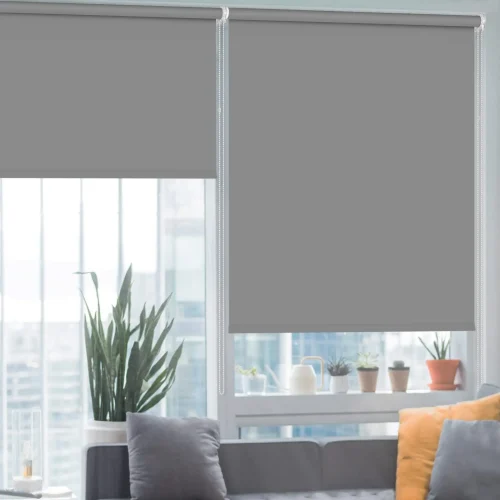Smart Blinds
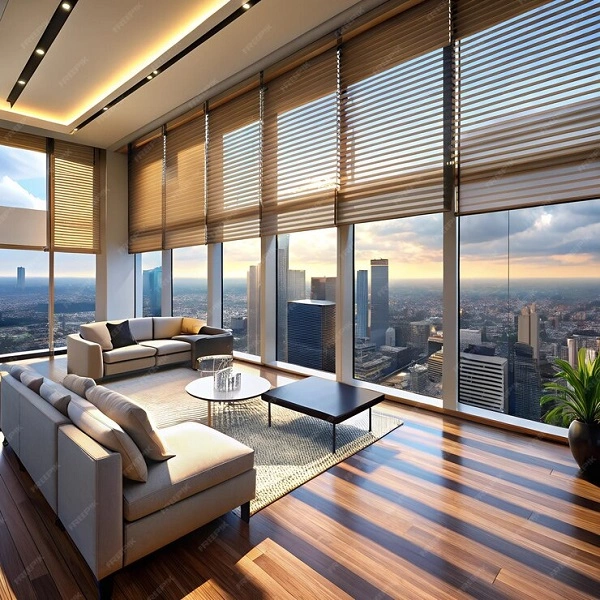
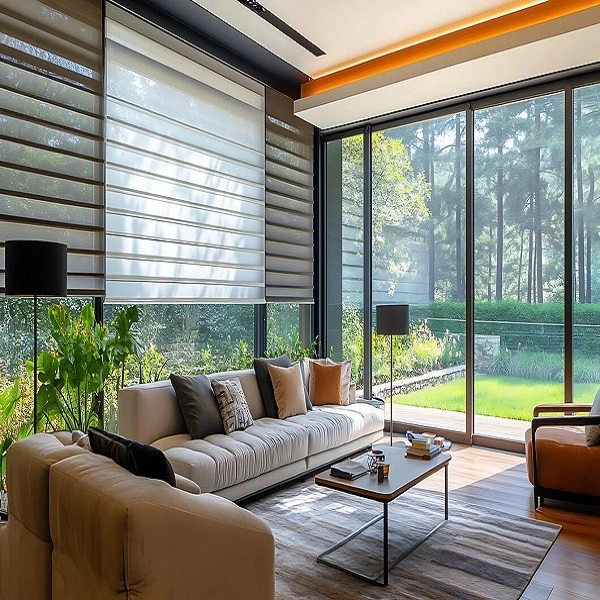
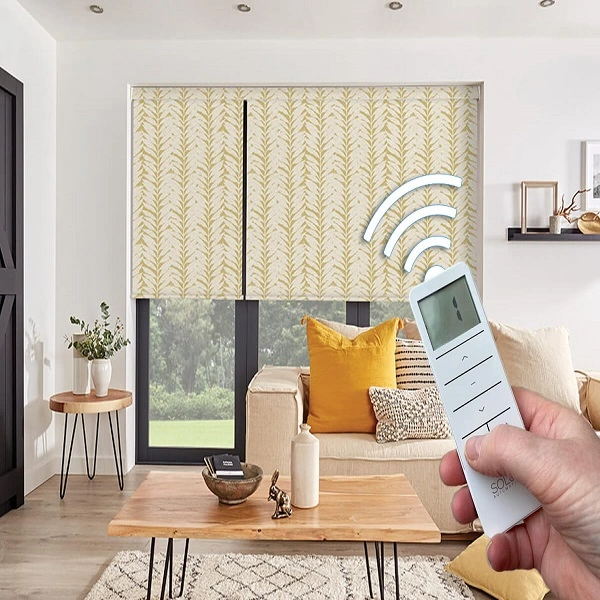
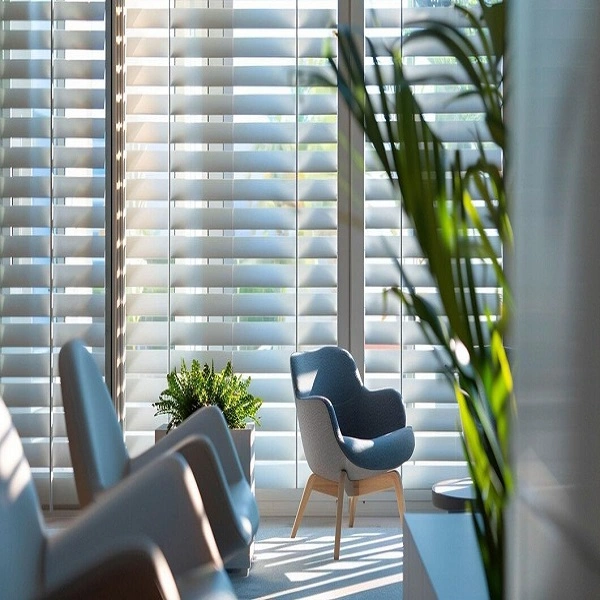
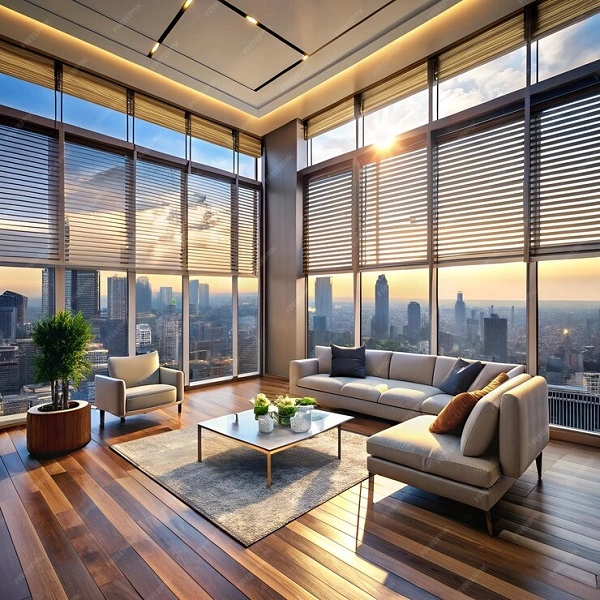
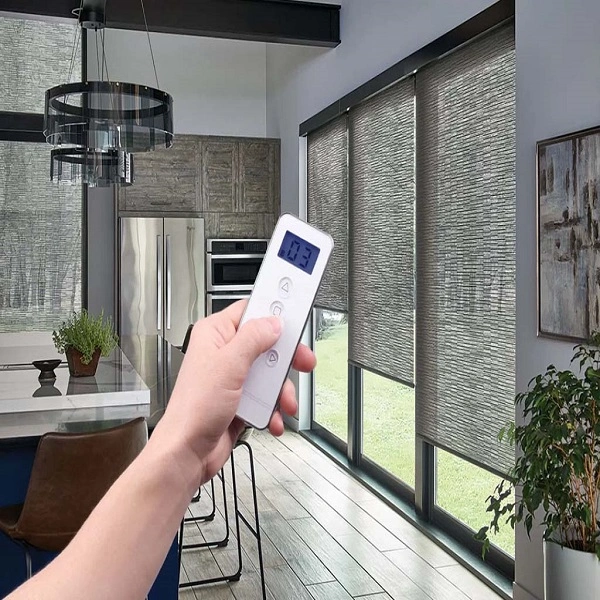
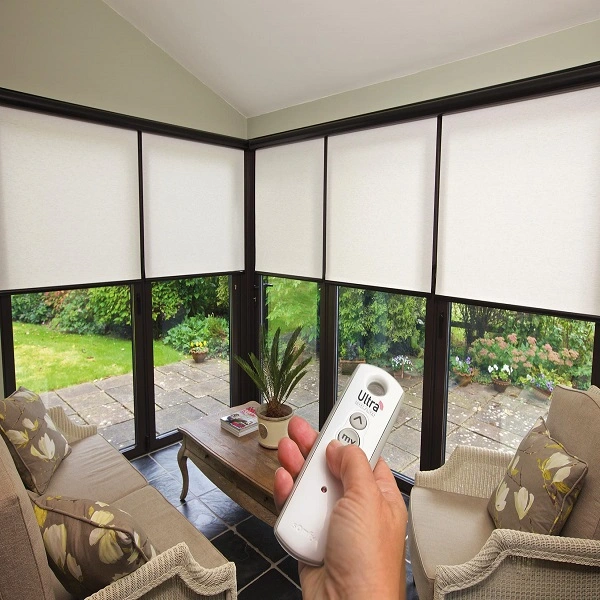
Transform Your Space with the Best Smart Blinds in Dubai and Abu Dhabi
Are you looking to elevate your living or working space with the latest in window treatment technology? We proudly offer the best smart blinds Dubai and Abu Dhabi, designed to enhance your comfort and style. Our collection features remote control blinds and automatic blinds for windows, allowing you to control light and privacy at the touch of a button.
Imagine effortlessly adjusting your smart shades with your smartphone or through voice commands with Smart Blinds Alexa integration. Our smart home blinds not only offer convenience but also add a modern touch to any room.
You can buy our range of smart roller shades that combine functionality with elegance, making them the perfect choice for both residential and commercial spaces. Explore our competitive prices and discover how easy it is to purchase high-quality smart blinds.
In addition to our retail offerings, we are also the leading smart blinds wholesaler in Dubai and Abu Dhabi. Whether you are a contractor, interior designer, or business owner, we provide exceptional wholesale pricing to meet your needs. Check our wholesale price offers; call now 0566-00-9626 and take advantage of our exclusive deals. With our expert installation and superior customer service, transforming your environment has never been easier. Experience the future of window treatments today!
Looking for the Best Smart Blinds Shop/Store in Dubai and Abu Dhabi for Residential and Commercial Projects?
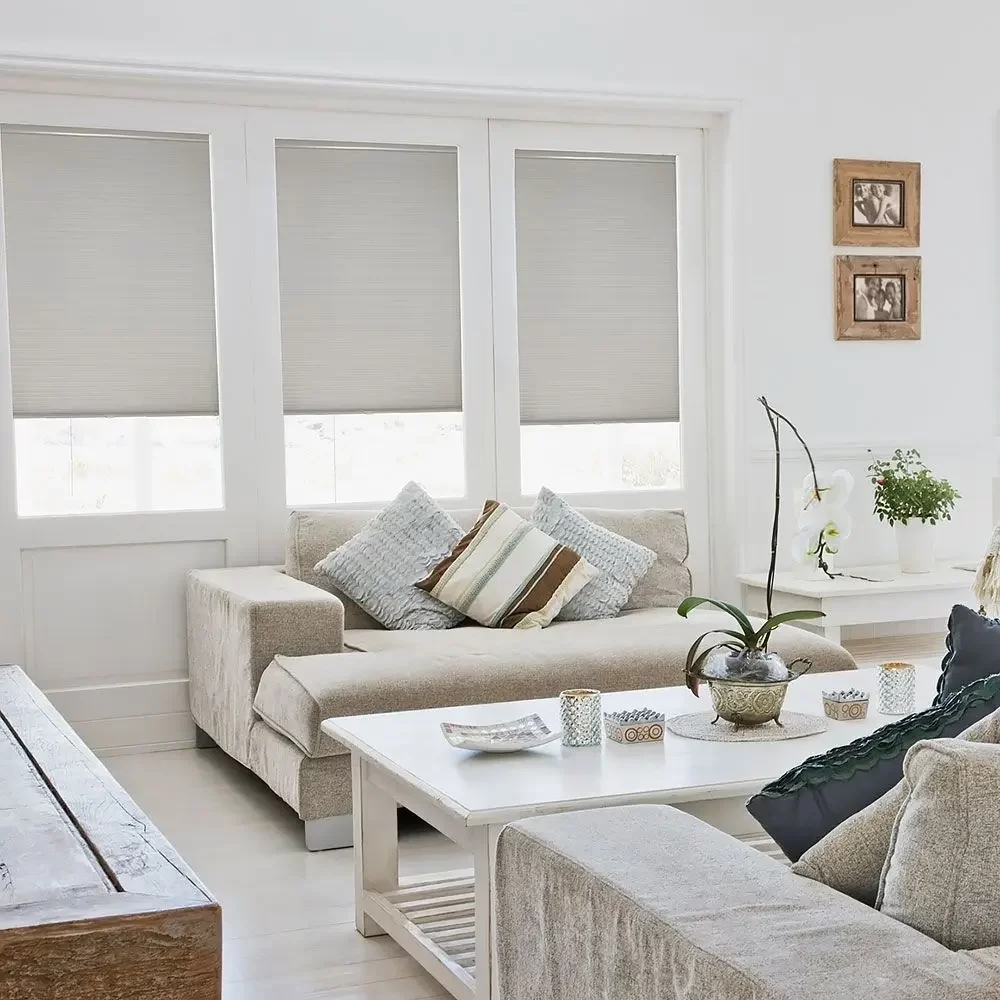
If you’re searching for the best smart blinds shop in Dubai and Abu Dhabi, your search ends here! With branches conveniently located in both cities, we offer an unparalleled selection of smart window treatments that are perfect for both residential and commercial projects. Whether you’re looking for remote control blinds for your home or automatic blinds for windows to add convenience to your office, we have a wide range of products to meet your needs. Our smart blinds are designed to combine style with cutting-edge technology, offering seamless control and enhanced comfort in any space. From smart shades to motorized roller blinds, we ensure that your window coverings are both functional and fashionable.
Our dedicated team of experts is always on hand to assist you throughout your buying journey, ensuring you make the perfect choice for your space. We are committed to providing top-quality products and exceptional customer service, offering personalized guidance at every step. Whether you’re upgrading your home with smart home blinds or outfitting a corporate office with sophisticated smart roller shades, we have the expertise and solutions you need. Visit us today to experience the best in smart blinds and discover why we are the leading choice for automated window treatments in Dubai and Abu Dhabi!
Discover the Exceptional Features of Our Smart Blinds
- Antibacterial: Our smart blinds are crafted with advanced antibacterial properties, promoting a cleaner and healthier environment for your home or office. These blinds help reduce the spread of germs, making them ideal for any space where hygiene is essential.
- Fire Rated/Fire Coated/Antifire: Safety is a top priority, which is why our smart blinds are available with fire-rated and fire-coated options. These blinds meet stringent fire safety standards, giving you peace of mind while adding style to your space.
- Eco-Friendly: We are committed to sustainability by offering smart blinds made from eco-friendly materials. Not only do these blinds reduce your carbon footprint, but they also provide an elegant, modern touch to any room.
- Waterproof Materials/Waterproof Fabrics: Our smart blinds are designed with waterproof materials, making them perfect for high-moisture areas like kitchens and bathrooms. They provide durability, easy maintenance, and long-lasting performance in any environment.
- Free Interior Design Service: Take advantage of our complimentary interior design service to ensure your smart blinds perfectly match your style and functional needs. Our experts will guide you through the selection process, making your space both beautiful and practical.
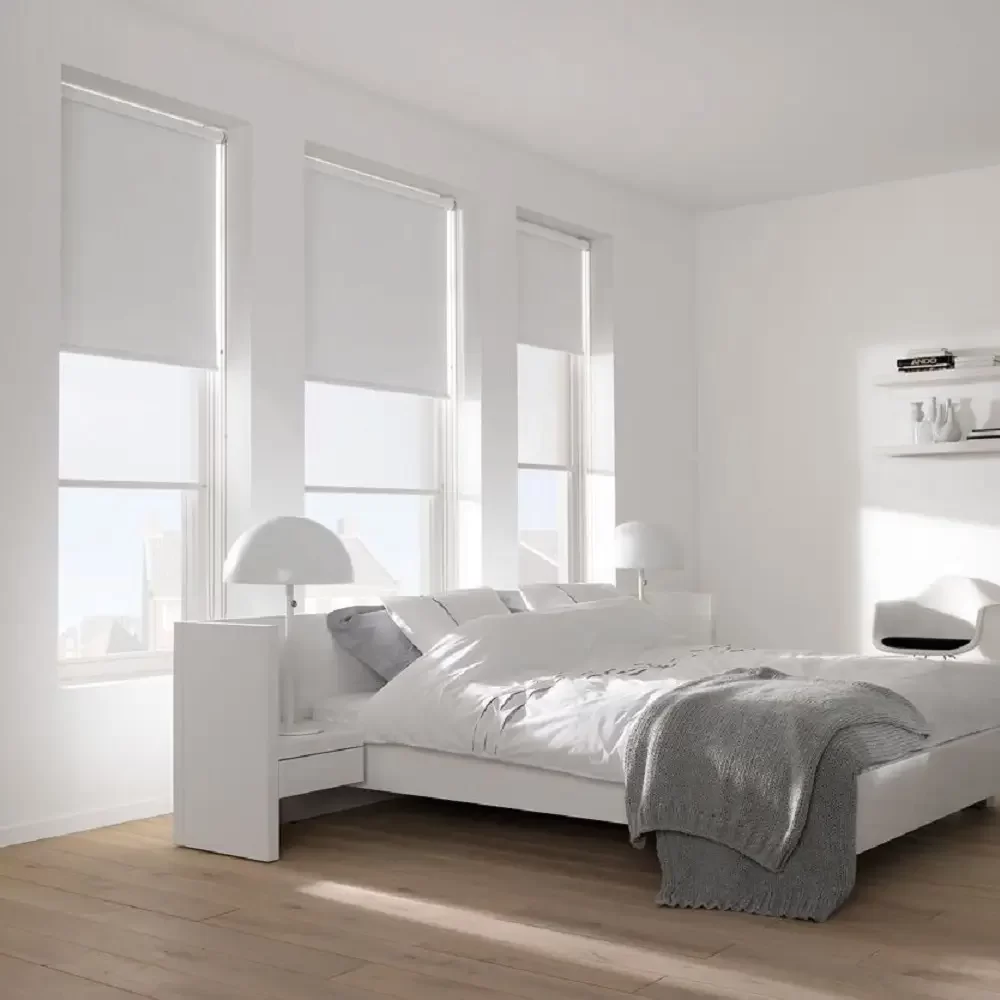
CLEARANCE SALE | LIMITED TIME OFFER | HURRY UP!
Get Up to 50% Off on Our Premium Smart Blinds Abu Dhabi – Limited Time Offer!
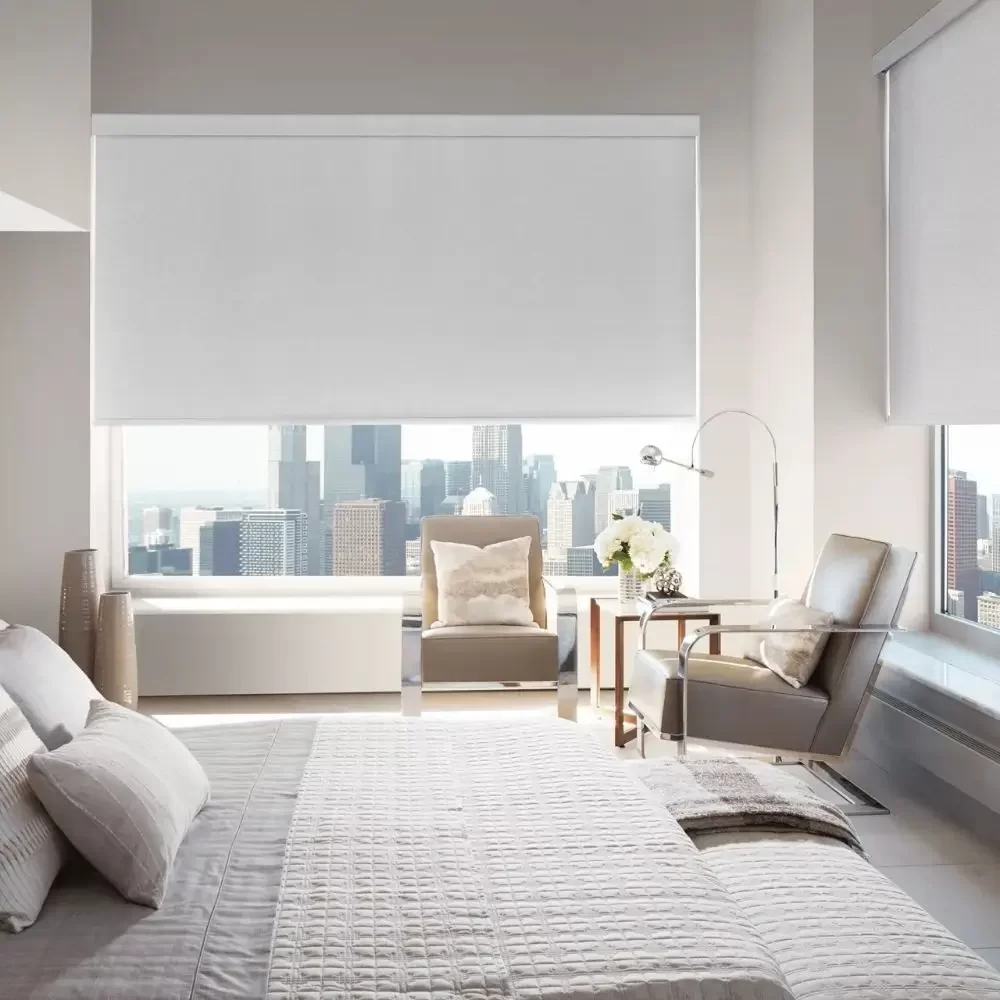
Wholesale Orders: Transform Your Business with Incredible Savings!
Are you looking to buy the best products for your large-scale projects? Take advantage of our exclusive wholesale offers! For orders exceeding, you can enjoy up to 50% discount on our premium smart blinds abu dhabi. This is the perfect opportunity for contractors, interior designers, and businesses to elevate their spaces while significantly reducing costs. Don’t miss out on this chance to maximize your profits and enhance your portfolio with our top-notch products. Sale offers like this won’t last long, so act fast!
Retail Orders: Elevate Your Space with Unbeatable Discounts!
For those seeking stylish and functional solutions for their homes or offices, we have fantastic news! Enjoy up to 30% discount on our stunning range of smart blinds abu dhabi for retail orders. This is your chance to buy the best products at a fraction of the cost. Our sale offers provide you with incredible value without compromising on quality. Transform your living or working environment with our cutting-edge designs and functionality. Don’t wait—take advantage of these amazing discounts today and experience the perfect blend of style and convenience!
Explore the Diverse Range of Smart Blinds We Provide
- Remote Control Blinds: Enjoy ultimate convenience with remote control blinds, allowing you to adjust light and privacy effortlessly from anywhere in your home or office.
- Automatic Blinds for Windows: These innovative blinds open and close automatically based on your preferences, providing a seamless solution for controlling natural light throughout the day.
- Smart Shades: Our smart shades combine elegance with technology, offering customizable options that fit any décor while providing effective light control and insulation.
- Smart Home Blinds: Integrate our smart home blinds into your home automation system for easy control via smartphone apps or voice commands, ensuring comfort at your fingertips.
- Blackout Smart Blinds: Ideal for bedrooms and media rooms, our blackout smart blinds block out light entirely, creating the perfect environment for relaxation and entertainment.
- Honeycomb Shades: These energy-efficient smart blinds feature a unique design that traps air, providing insulation and helping you maintain a comfortable temperature in your space.
- Sheer Shades: Achieve a delicate balance of light and privacy with our sheer shades. They gently filter sunlight while maintaining visibility to the outside.
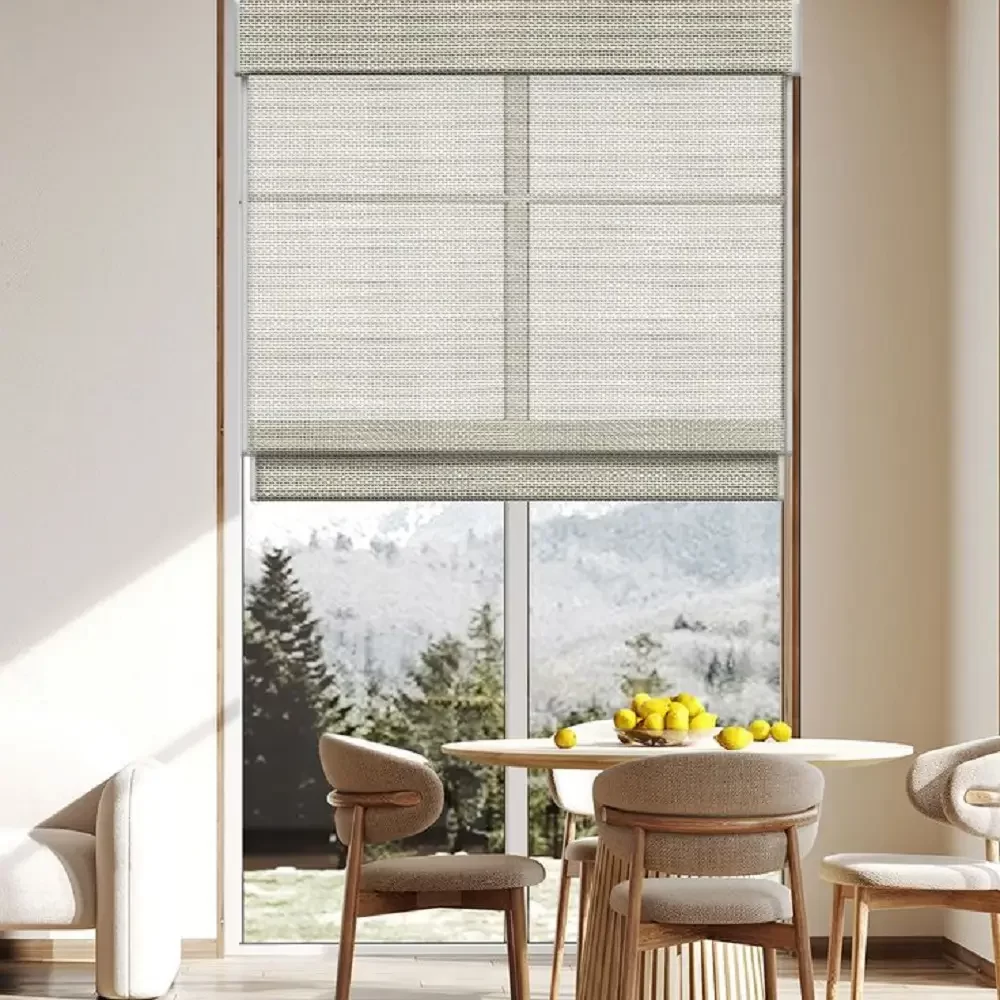
Unlock the Incredible Benefits of Our Smart Blinds
- Convenience and Control: Experience unmatched convenience with smart blinds that can be controlled via remote, smartphone apps, or voice commands, making your life easier and more efficient.
- Energy Efficiency: Our smart blinds help regulate indoor temperatures by blocking out heat in summer and retaining warmth in winter, leading to lower energy bills and increased comfort.
- Enhanced Privacy: Enjoy peace of mind with adjustable smart blinds that provide precise control over visibility, allowing you to maintain your privacy without sacrificing natural light.
- Home Automation Compatibility: Seamlessly integrate our smart blinds into your existing smart home system, allowing for automated routines and synchronized control with other devices for a truly smart home experience.
- Stylish Aesthetics: Our smart blinds come in a variety of designs, colors, and materials, enhancing your interior décor while providing functional benefits for any space.
- Child and Pet Safety: With no dangling cords, our smart blinds are a safer option for homes with children and pets, eliminating potential hazards and providing peace of mind.
- Durability and Low Maintenance: Built with high-quality materials, our smart blinds are designed to last. They require minimal maintenance, ensuring they continue to look great and function effectively over time.
- Improved Sleep Quality: With options like blackout blinds, you can create a dark, restful environment, promoting better sleep quality and enhancing your overall well-being.
Discover the Versatile Applications of Our Smart Blinds Dubai
- Residential Spaces: Enhance your home’s comfort and aesthetics with smart blinds dubai that seamlessly integrate into living rooms, bedrooms, and kitchens for tailored light control.
- Office Environments: Create a productive workspace with smart blinds dubai that adjust automatically, reducing glare on screens while maintaining a professional appearance in meeting rooms.
- Smart Homes: Integrate smart blinds dubai into your home automation systems for personalized control and scheduling, making your living space more convenient and efficient.
- Hospitality Industry: Elevate guest experiences in hotels and restaurants with stylish smart blinds, providing privacy and ambiance control at the touch of a button.
- Retail Stores: Use smart blinds dubai to manage natural light and create inviting displays, enhancing the shopping experience while protecting merchandise from UV damage.
- Educational Institutions: Improve learning environments with smart blinds that minimize distractions by controlling light levels in classrooms and auditoriums, promoting focus and productivity.
- Healthcare Facilities: Create calming environments in hospitals and clinics with smart blinds dubai that can be easily adjusted for patient comfort, improving overall well-being and recovery.
- Commercial Buildings: Optimize energy usage in corporate spaces by installing smart blinds dubai that adjust based on sunlight exposure, reducing reliance on artificial lighting and HVAC systems.
Your Trusted Smart Blinds Supplier in All Emirates of the UAE
We are proud to be the leading smart blinds supplier in all emirates of the UAE, including Dubai, Abu Dhabi, Sharjah, Ajman, Ras Al Khaimah, Fujairah, and Al Ain (Abu Dhabi). Our commitment to providing high-quality smart blinds tailored to your needs sets us apart in the industry.
Whether you’re looking for remote control blinds for your home in Dubai, elegant smart shades for your office in Abu Dhabi, or energy-efficient solutions in Al Ain, we have you covered. Our extensive range of products is designed to meet the diverse needs of residential and commercial projects across the region. With our expert team ready to assist you, transforming your space with cutting-edge window treatment technology has never been easier. Contact us today to explore our collection and elevate your environment with the best smart blinds available!
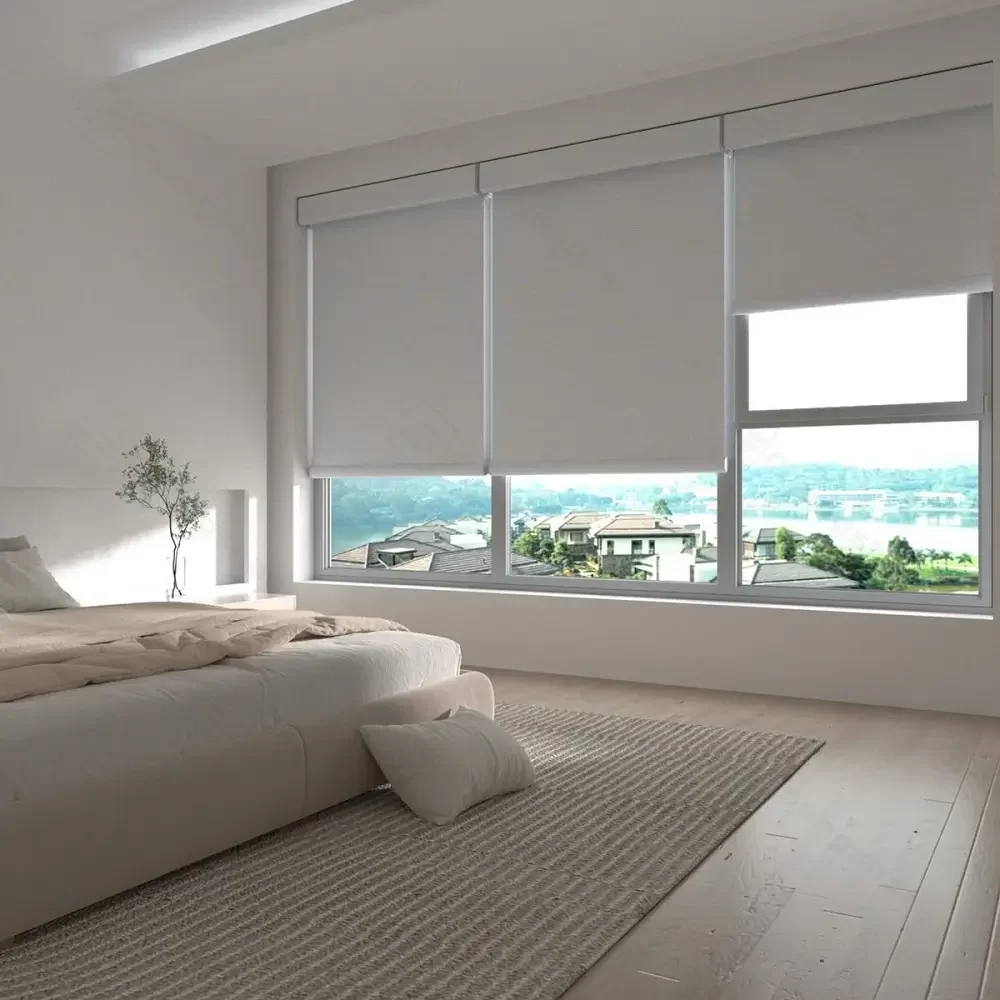
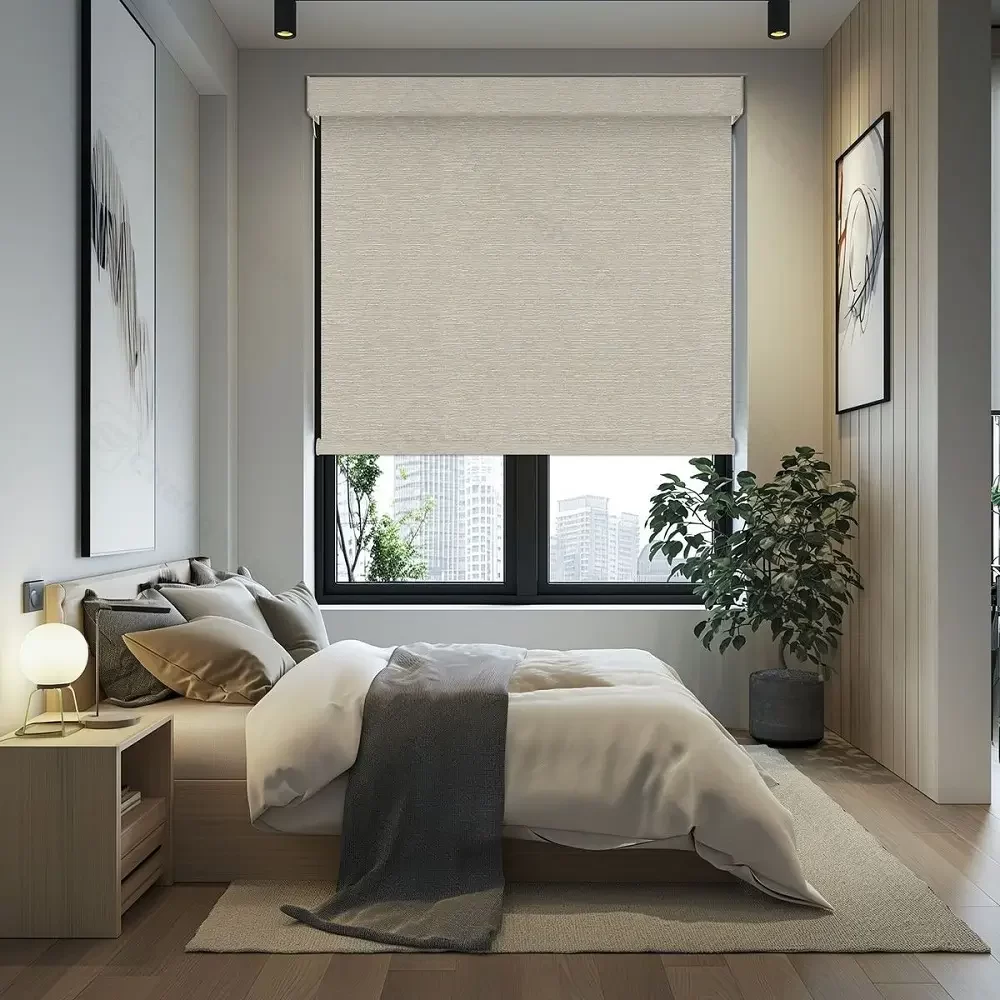
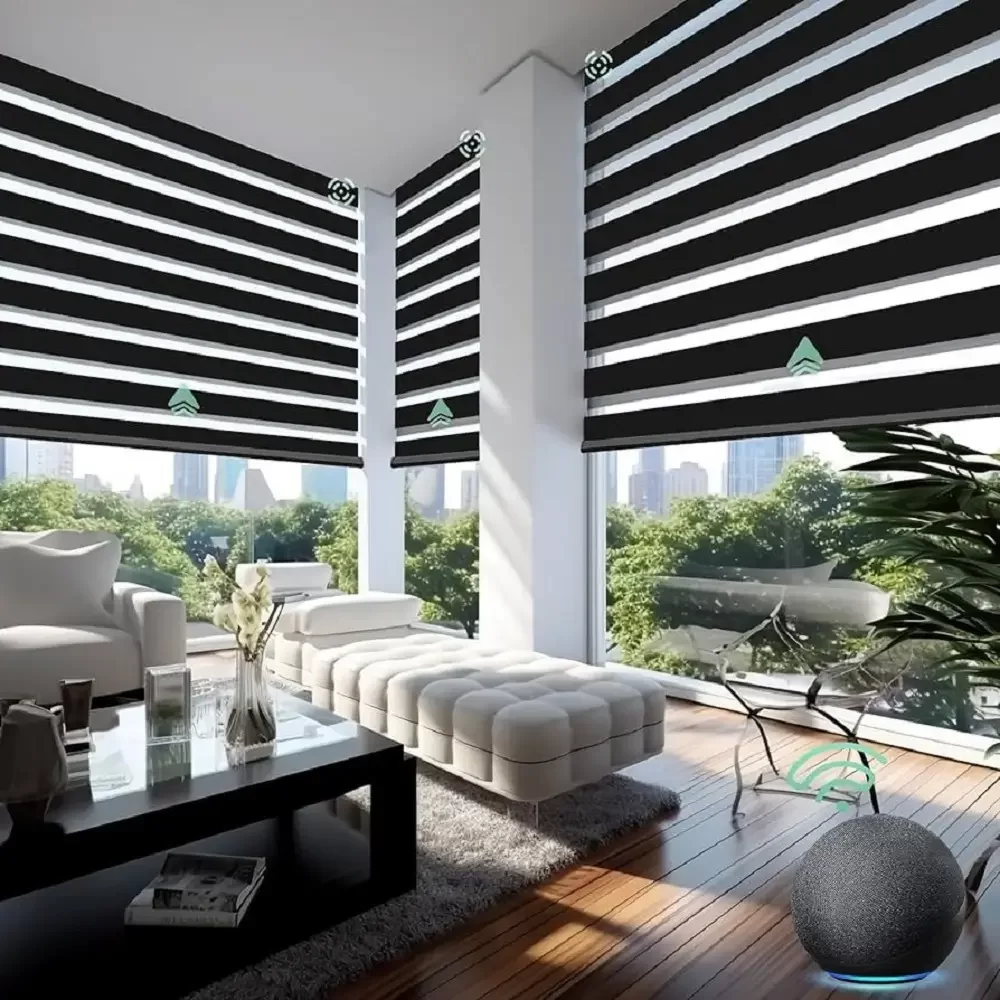
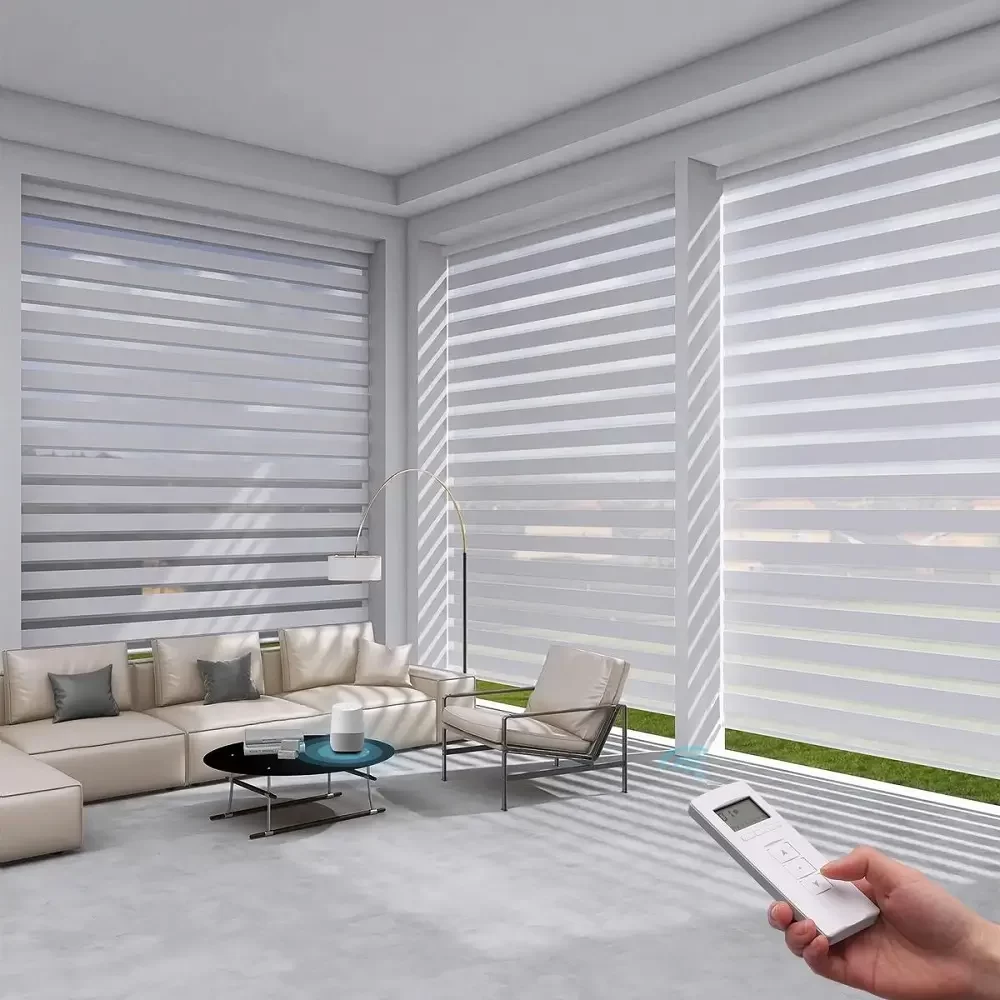
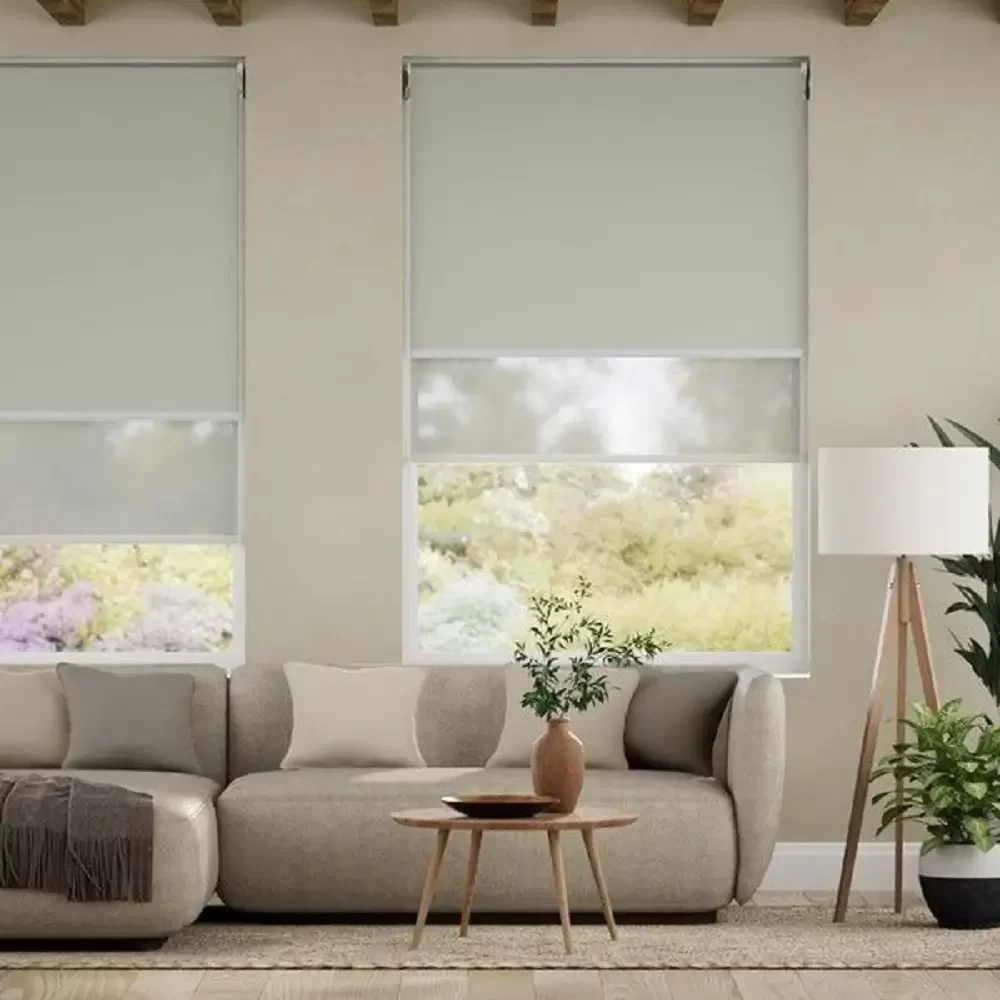
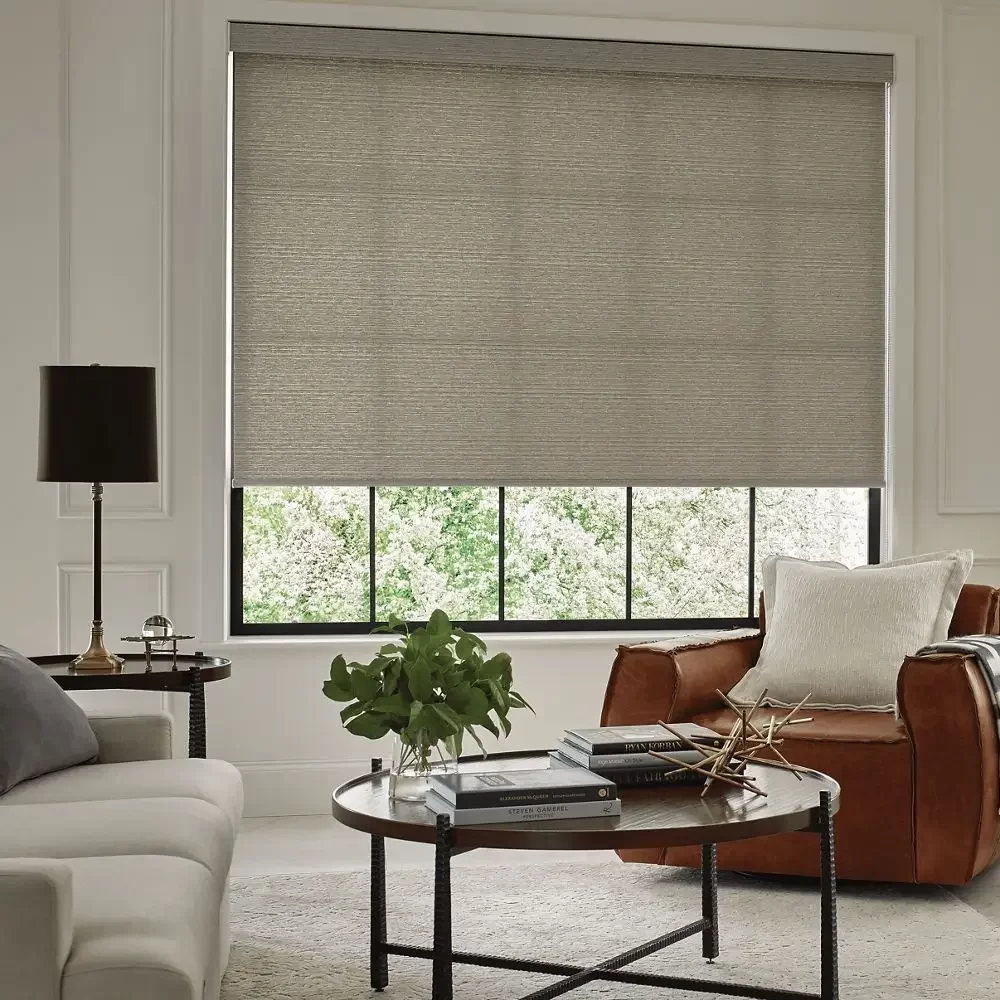
Why Choose Us for Smart Blinds?
- Quality Assurance: We are committed to providing only the highest quality smart blinds that meet industry standards, ensuring durability and long-lasting performance for your home or business.
- Wide Selection: Our extensive range of smart blinds abu dhabi includes various styles, materials, and functionalities, allowing you to find the perfect fit for your specific needs and aesthetic preferences.
- Expert Team: Our knowledgeable and experienced team is dedicated to offering exceptional customer service. From consultation to installation, we ensure a seamless experience tailored to your requirements.
- Customization Options: We understand that every space is unique. That’s why we offer customizable solutions, allowing you to tailor your smart blinds to suit your specific style and functionality needs.
- Competitive Pricing: Enjoy the best value for your investment with our competitive pricing and exclusive discounts for both wholesale and retail orders, making it easier to enhance your space without breaking the bank.
- Smart Technology Integration: Our smart blinds are designed to integrate effortlessly with your home automation systems, providing you with convenience and control at your fingertips, whether through mobile apps or voice commands.
- Comprehensive Services: In addition to supplying high-quality smart blinds, we provide free interior design consultations and professional installation services to ensure your complete satisfaction.
- Customer Satisfaction: Our commitment to customer satisfaction is unwavering. We strive to exceed your expectations, ensuring you have a positive experience from start to finish.
Choose us as your trusted partner for smart blinds and experience the perfect blend of style, functionality, and innovation!
Seamless Smart Blinds Installation: Our Expert Team Works 24/7!!
We understand that the right smart blinds can transform your space, and professional installation is key to unlocking their full potential. That’s why our dedicated installation team works 24/7 to ensure your smart blinds are installed perfectly, no matter your schedule.
From remote control blinds to automatic blinds for windows, our experts handle every type of smart shade with precision and care. We ensure that your smart home blinds are seamlessly integrated into your living or working environment, enhancing both aesthetics and functionality. Our team is skilled in installing various options, including smart roller shades, so you can enjoy the convenience of controlling light and privacy at your fingertips.
We pride ourselves on providing a hassle-free experience, whether for residential or commercial projects across the UAE. Our installation service is designed to accommodate your needs, and we guarantee that you’ll be thrilled with the results. Trust us for your smart blinds installation and experience the perfect blend of style, technology, and professionalism today!
FAQs About Smart Blinds
A: Smart blinds are advanced window treatments that can be controlled remotely using a smartphone, tablet, or voice commands. They offer features like automated opening and closing, energy efficiency, and enhanced privacy.
A. Smart blinds provide numerous benefits, including convenience, energy efficiency, improved privacy, and compatibility with home automation systems. They also come in various styles to match your decor.
A. Smart blinds typically operate through a motorized system that can be controlled via an app or smart home device. They can be set to operate on a schedule or triggered by specific conditions, such as sunlight.
A. While some users may opt for DIY installation, we recommend professional installation to ensure optimal functionality and fit. Our expert team is available for seamless installation.
A. Yes, we supply and install Smart Blinds all across Saudi Arabia, including Riyadh, Jeddah, Mecca, Medina, Khobar, Dammam, Dhahran, and Tabuk, as well as throughout the Gulf region and the Middle East.
A. Yes, we supply and install Smart Blinds all across Oman, including Muscat, Salalah, Sohar, Nizwa, Sur, Buraimi, Ibra, and Dhofar, as well as throughout the Gulf region and the Middle East.
A. Yes, we supply and install Smart Blinds all across Qatar, including Doha, Al Rayyan, Al Wakrah, Al Khor, Al Daayen, Umm Salal, Madinat ash Shamal, and Mesaieed, as well as throughout the Gulf region and the Middle East.

